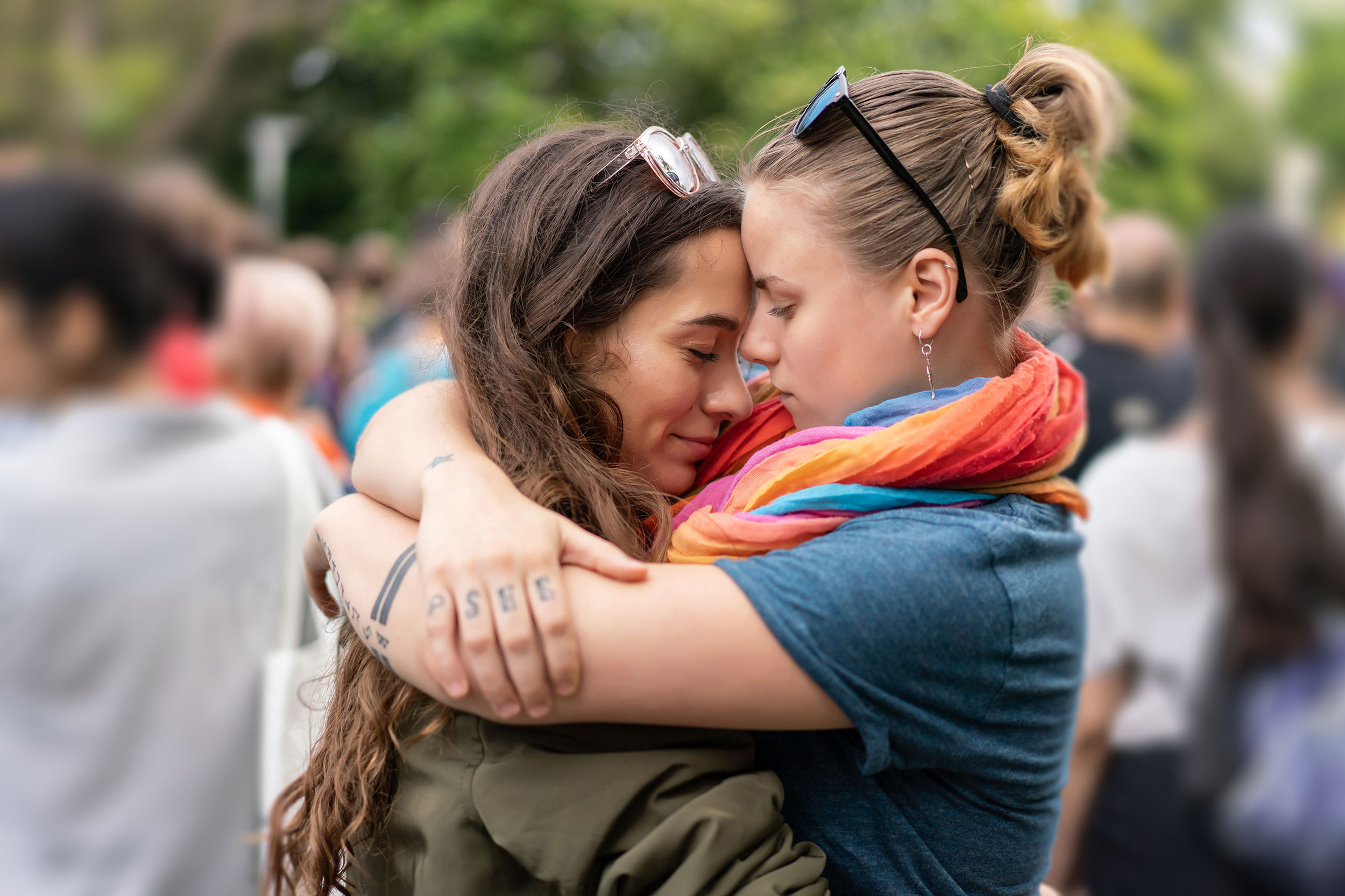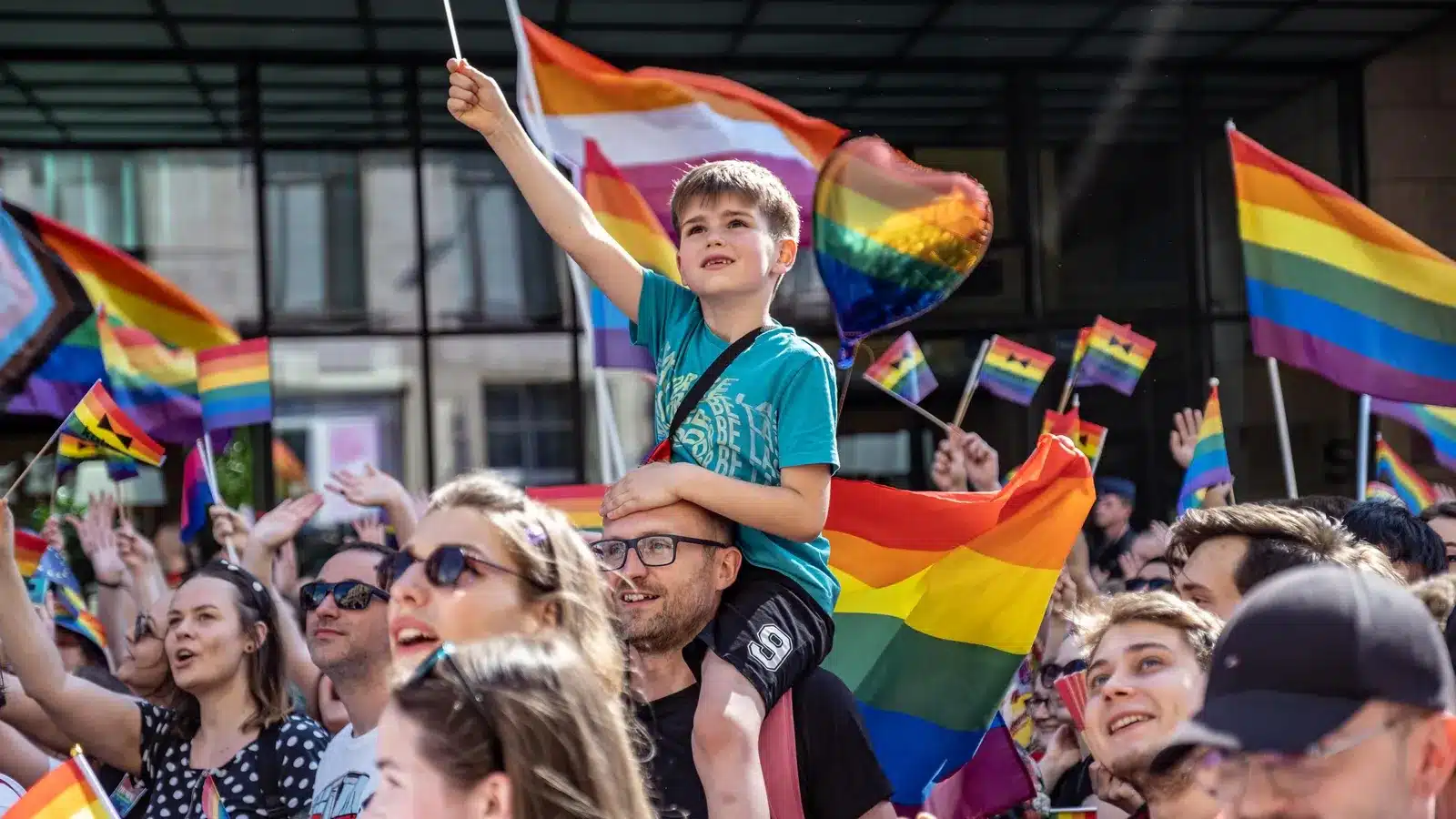The concepts of family and relationships within the LGBTQ+ community are as diverse and dynamic as the community itself. From the unique challenges of parenting in LGBTQ+ families to the deeply personal journey of coming out and seeking family acceptance, and finally, to the creation of supportive communities and chosen families, these experiences are pivotal in shaping the lives and wellbeing of LGBTQ+ individuals. This article explores these themes, offering insights and examples from around the world.

Parenting in LGBTQ+ Families
Parenting in LGBTQ+ families presents both unique challenges and rewarding experiences. LGBTQ+ parents often navigate a landscape of legal, social, and cultural obstacles that heterosexual parents may not face. However, research consistently shows that children raised in LGBTQ+ families thrive just as well as those raised in heterosexual families.
Legal recognition of LGBTQ+ parents varies widely across the globe. In countries like Canada and the Netherlands, LGBTQ+ couples have the right to adopt and are legally recognized as parents. However, in other countries, such as Russia and some states in the U.S., LGBTQ+ individuals face significant legal barriers to adoption and parenting.
For example, in 2021, the U.S. Supreme Court ruled in favor of a Catholic social services agency that refused to work with same-sex foster parents, highlighting the ongoing legal challenges faced by LGBTQ+ parents. Despite these challenges, many LGBTQ+ couples are raising happy, healthy families. Studies, such as the one conducted by the American Psychological Association, have shown that children of LGBTQ+ parents show resilience and develop positive social and emotional skills.
The process of family formation for LGBTQ+ individuals can include adoption, surrogacy, and insemination. Organizations like Family Equality in the U.S. provide resources and support for LGBTQ+ individuals navigating the path to parenthood. These organizations advocate for legal rights, provide educational resources, and offer community support.

The Coming Out Process and Family Acceptance
The coming out process is a significant and deeply personal journey for LGBTQ+ individuals. It involves disclosing one’s sexual orientation or gender identity to family, friends, and others, often in the face of potential rejection or misunderstanding. Family acceptance can profoundly impact the mental and emotional wellbeing of LGBTQ+ individuals.
Coming out can be a positive experience, but it also carries risks, especially in communities or cultures with strong anti-LGBTQ+ sentiments. In many parts of the world, coming out can lead to family rejection, homelessness, or even violence. For example, in some Middle Eastern countries, being openly LGBTQ+ can result in severe legal consequences, including imprisonment or worse.
However, positive examples of family acceptance abound. In countries with more progressive attitudes toward LGBTQ+ rights, many families offer unwavering support. A 2018 study by the Family Acceptance Project found that LGBTQ+ youth who experienced family acceptance reported higher self-esteem, better mental health, and a lower risk of suicide.
Organizations such as PFLAG (Parents, Families, and Friends of Lesbians and Gays) provide resources and support for families navigating the coming out process. PFLAG chapters worldwide offer educational materials, support groups, and advocacy efforts to promote family acceptance and understanding.

Building Supportive Communities and Chosen Families
For many LGBTQ+ individuals, supportive communities and chosen families are vital sources of love, acceptance, and support. Chosen families, consisting of friends and other non-biological connections, often provide the emotional and social support that may be lacking from biological families.
The concept of chosen families is particularly significant for LGBTQ+ individuals who have faced rejection from their biological families. These chosen families can offer a sense of belonging and community that is crucial for mental and emotional wellbeing. In cities with large LGBTQ+ populations, such as San Francisco, New York, and Berlin, chosen families and supportive communities thrive, offering social networks and support systems.
Supportive communities can be found in various settings, including LGBTQ+ centers, online platforms, and social groups. These communities provide safe spaces for LGBTQ+ individuals to connect, share experiences, and receive support. For instance, The Trevor Project offers crisis intervention and suicide prevention services for LGBTQ+ youth, providing a lifeline for those in need.
Globally, LGBTQ+ Pride events are powerful expressions of community and solidarity. These events celebrate LGBTQ+ identities, promote visibility, and advocate for equal rights. Pride festivals in cities like São Paulo, Toronto, and Sydney attract millions of participants and serve as a reminder of the strength and resilience of the LGBTQ+ community.
Additionally, online platforms have become increasingly important for building supportive communities. Social media networks, forums, and dating apps offer spaces for LGBTQ+ individuals to connect and support each other, regardless of geographical location. Platforms like Reddit’s r/lgbt subreddit and Facebook groups provide forums for discussion, advice, and solidarity.
:max_bytes(150000):strip_icc()/GettyImages-1129765002-a750ab86a07e42ed8d56059f1bcadf25.jpg)
Conclusion
The experiences of LGBTQ+ individuals in the realms of family and relationships are multifaceted and deeply personal. Parenting in LGBTQ+ families involves navigating legal and social challenges while providing loving and supportive environments for children. The coming out process can be both liberating and challenging, with family acceptance playing a crucial role in the mental and emotional health of LGBTQ+ individuals. Building supportive communities and chosen families offers a vital source of connection and belonging, especially for those who face rejection from their biological families.
Understanding and supporting the diverse experiences of LGBTQ+ individuals in these areas is essential for fostering a more inclusive and accepting society. By recognizing the importance of family, acceptance, and community, we can create environments where all individuals, regardless of their sexual orientation or gender identity, are valued and supported.
For more stories like this, please visit here



